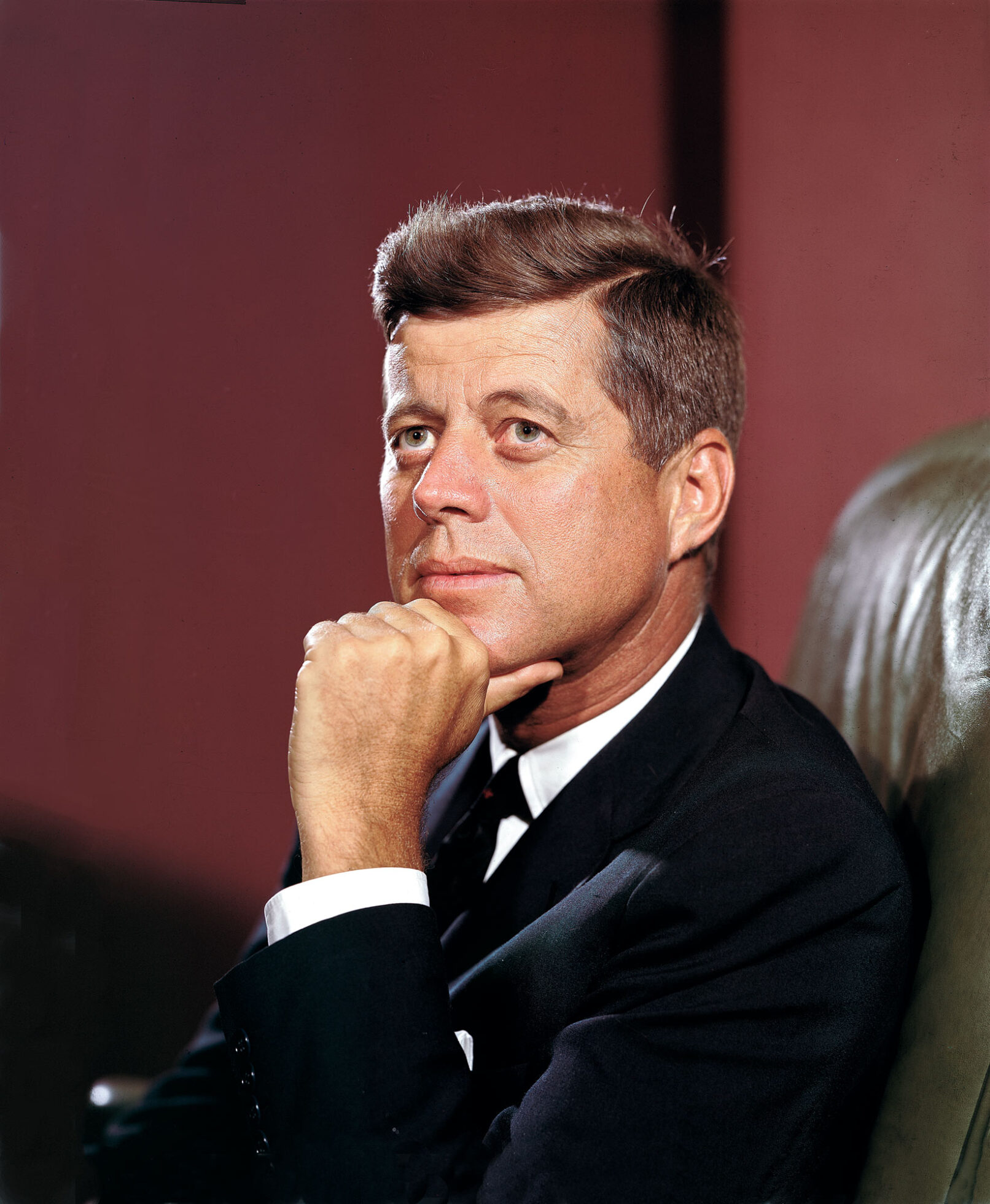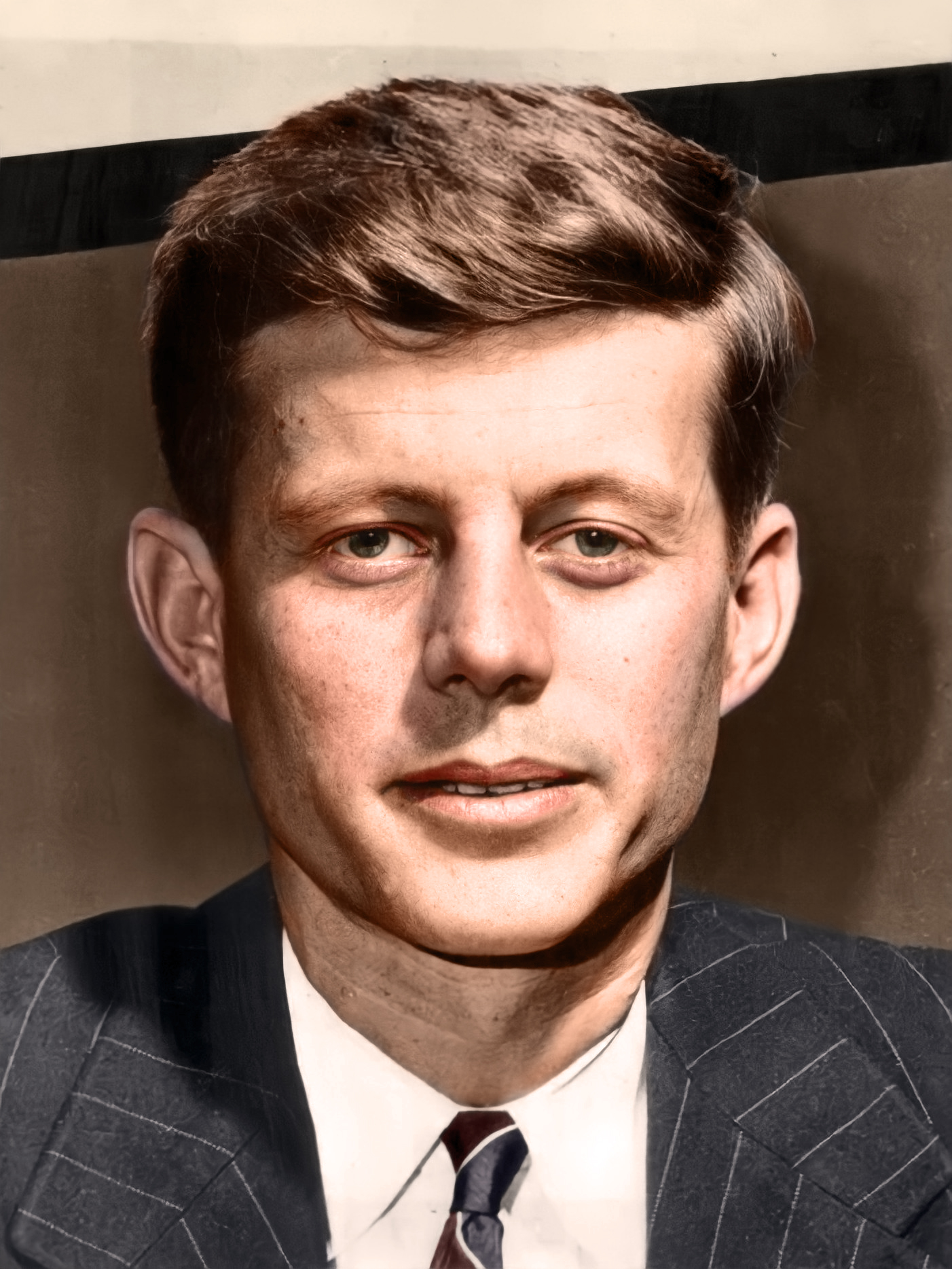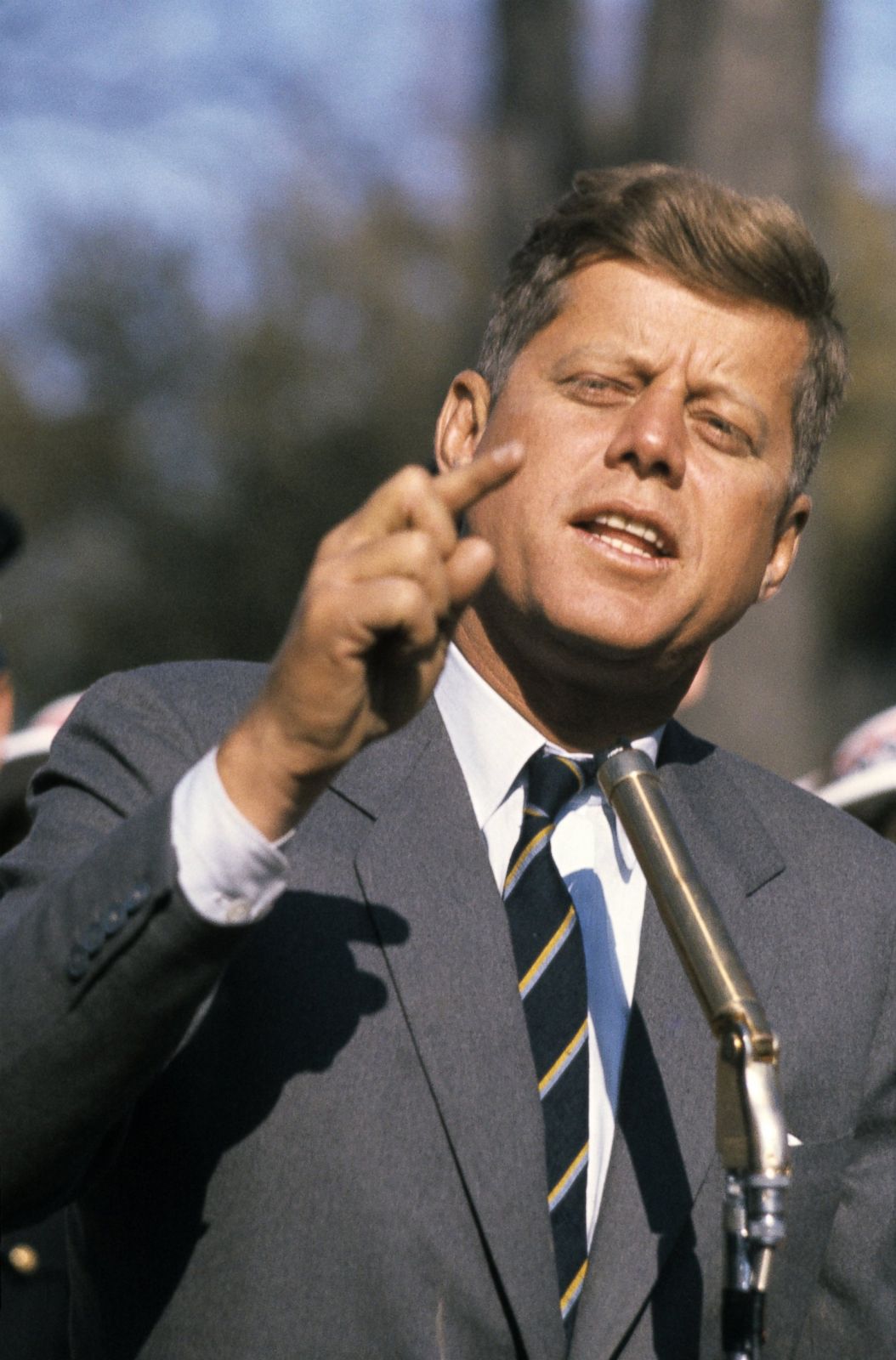JFK's Net Worth At Death: Unpacking The Financial Story Of A President
When we think about historical figures, especially someone like John F. Kennedy, there's often a curiosity about their personal lives, their impact, and, yes, even their financial standing. It's a natural thing to wonder about, perhaps because money, in a way, reflects a person's life journey and the resources they had. So, it's almost, what was John F. Kennedy's net worth at the time of his passing? This question brings us to a really interesting point about public service, family legacy, and how wealth was seen, very, very differently, decades ago.
The idea of a president's personal wealth is a topic that can spark a lot of thought. For someone who served at the very top of the nation, one might picture immense personal riches. Yet, the story of JFK's financial situation is a bit more nuanced than just a simple number. It ties into his family's long-standing influence and the nature of public life in the mid-20th century. We'll look at the context surrounding his life and how that shaped his financial picture.
Understanding the financial aspects of a historical figure like President Kennedy means looking beyond today's standards of wealth reporting. It involves considering the era he lived in, the sources of his family's money, and what it meant to be a public servant then. This article will help shed light on the circumstances that surrounded John F. Kennedy's finances when he tragically left us on November 22, 1963, when he was hardly past his first thousand days in office, a bit too soon, many would say.
Table of Contents
- John F. Kennedy: A Life in Public Service
- The Kennedy Family's Enduring Wealth
- Public Service and Personal Finances
- Understanding "Net Worth" for a Public Figure
- The Legacy Beyond Dollars and Cents
- Your Questions Answered: FAQs About JFK's Finances
John F. Kennedy: A Life in Public Service
John F. Kennedy, born on May 29, 1917, in Brookline, Massachusetts, was a pivotal figure in American history. He served as the 35th president from 1961 until his tragic assassination. His journey to the presidency was marked by various stages of public service and a deep commitment to the nation, in a way, that truly resonated with many people.
Before his time in the Oval Office, Kennedy had a distinguished career. He served in the Navy, showing courage and leadership during World War II. After his military service, he moved into politics, first serving in Congress, and then as a senator. It was soon after being elected senator, John F. Kennedy, began to make a real name for himself on the national stage. He was, in some respects, a rising star, very quickly.
As president, Kennedy became one of the youngest U.S. Presidents, as well as the first Roman Catholic to hold the office. He served from 1961 to 1963. During his short time in office, he initiated significant programs, like the creation of the Peace Corps, fulfilling a campaign pledge by issuing an executive order. He was a president who was young and full of vision, truly.
Personal Details and Bio Data
| Full Name | John Fitzgerald Kennedy |
| Born | May 29, 1917 |
| Birthplace | Brookline, Massachusetts |
| Died | November 22, 1963 |
| Age at Death | 46 years old |
| Education | Harvard University (graduated cum laude with a Bachelor of Arts degree in Government with a concentration on International Affairs) |
| Spouse | Jacqueline Lee Bouvier |
| Presidential Term | 1961 - 1963 (35th U.S. President) |
The Kennedy Family's Enduring Wealth
To truly consider John F. Kennedy's financial situation at his death, it's important to understand the deep roots of his family's wealth. The Kennedy family was, in fact, incredibly prosperous long before John F. Kennedy entered public life. His father, Joseph P. Kennedy Sr., built a very substantial fortune through various ventures, including banking, stock market investments, and liquor distribution. This family wealth provided a significant foundation for all the Kennedy children, arguably, giving them a distinct advantage.
This inherited prosperity meant that John F. Kennedy did not start his political career from a place of financial need. He had access to resources that allowed him to pursue public service without the typical financial pressures many individuals face. This background meant his personal finances were often intertwined with the broader family holdings, which is something that can be a little hard to untangle, even today. The family's resources supported many of their endeavors, and that includes political campaigns.
The family's wealth was not just about money; it was about influence and opportunity. It allowed John F. Kennedy to focus on his studies, graduating from Harvard University cum laude with a bachelor of arts degree in government with a concentration on international affairs. This kind of upbringing, with significant financial backing, shaped his path and allowed him to pursue a life of public service rather than needing to build a personal fortune. He was, therefore, not driven by the need to accumulate wealth during his time in office, which is pretty important to consider.
Public Service and Personal Finances
John F. Kennedy's career was dedicated to public service, a path that, generally speaking, does not lead to vast personal riches. His income came from his salaries as a congressman, senator, and eventually, president. These were respectable incomes for the time, but they were not designed to create personal fortunes on the scale of his family's existing wealth. This is a distinction that's often missed, you know.
Public servants, then as now, earned a salary for their work. While these salaries provided a comfortable living, they were not comparable to the earnings of successful business magnates of the era. So, when people ask about his "net worth," it's worth remembering that his public service roles were about serving the nation, not about increasing his personal bank account. This context is pretty important to grasp.
It's also worth noting that financial disclosure standards were very different in the 1960s compared to today. There wasn't the same level of public scrutiny or requirement for detailed personal financial statements for public officials. This makes it a bit harder to pinpoint an exact "net worth" figure for any historical figure from that time, especially when family assets are involved. It's not like they had to publish everything, you know.
Congressional and Senatorial Earnings
Before becoming president, John F. Kennedy served in both the House of Representatives and the Senate. His salary as a member of Congress would have been a fixed amount, set by law. In the 1950s, when he was serving, a U.S. Senator's salary was typically around $12,500 to $22,500 per year. This was a good income for the period, allowing for a comfortable life, but it wasn't a path to accumulating vast personal wealth, not really.
These earnings were his personal income from his work. However, his lifestyle and political activities were often supported by the broader Kennedy family resources. This meant that while his official salary was modest by today's standards for someone of his stature, his overall financial situation was underpinned by the substantial family fortune. So, his personal salary was just one piece of the puzzle, basically.
The costs associated with running for office and maintaining a public profile were also considerable. While his salary covered living expenses, campaigning and other political endeavors often required significant financial backing, which the Kennedy family was well-known for providing. This support allowed him to focus on his political career without the usual financial constraints. It's kind of a unique situation, when you think about it.
The Presidential Salary of the 1960s
When John F. Kennedy became president in 1961, the presidential salary was set at $100,000 per year. This was a substantial sum for the time, equivalent to a significant amount in today's money when adjusted for inflation. This salary was his official compensation for leading the country, and it included an expense account for official duties. It was, in fact, a very generous salary for a public servant.
However, even this large salary for the era was not the primary source of wealth for the Kennedy family. Their fortune was already established. The presidential salary covered the costs of running the Executive Office and the President's personal expenses while in office. It was a salary for a job, not a means of building a new financial empire, pretty much.
For a historical perspective, that $100,000 salary in 1961 would have a purchasing power of well over $900,000 in 2024 dollars. So, while it sounds less than today's presidential salary, it was quite considerable for its time. Nevertheless, it was just one part of the larger financial picture that included the deep family wealth. It's important to keep that in mind, you know.
Understanding "Net Worth" for a Public Figure
When we talk about "net worth" for a figure like John F. Kennedy, especially at the time of his death, it's not as simple as looking up a single number. His personal assets would have included things like bank accounts, investments he personally held, and any real estate he owned outright. However, a significant portion of the Kennedy family's wealth was likely held in trusts or managed by the broader family enterprise. This makes a clear individual "net worth" figure a bit fuzzy, honestly.
The concept of "net worth" for a public servant from a very wealthy family can be quite different from someone who built their own fortune. For JFK, his financial security and access to resources stemmed more from his family's established wealth than from personal accumulation during his public service career. He was, basically, born into a position of considerable financial comfort, which is a fact that shapes the whole conversation.
Moreover, the sudden and tragic nature of his death on November 22, 1963, meant that any formal assessment of his personal estate would have followed legal processes. Before the bill could get through Congress, JFK was assassinated in Dallas, Texas, on November 22, 1963. The focus at that time was on the profound loss and the transition of power, rather than a public accounting of his personal finances. It was, you know, a very different time with different priorities.
It is widely understood that the Kennedy family's fortune was substantial. While John F. Kennedy himself earned a presidential salary, his personal wealth was likely a component of the larger family estate, rather than a standalone, self-made fortune. His financial legacy is therefore tied to the enduring prosperity of the Kennedy family. You can learn more about American political history on our site, which helps put things in perspective.
The Legacy Beyond Dollars and Cents
While questions about "JFK net worth at death" are certainly interesting, it's also important to remember that John F. Kennedy's true legacy extends far beyond any monetary figure. His impact was in his vision for America, his call to public service, and his efforts on the global stage. He inspired a generation to ask what they could do for their country, a message that still resonates today, very much.
His time in office, though brief, left an indelible mark on the nation. From the creation of the Peace Corps to his leadership during the Cuban Missile Crisis, Kennedy's presidency was about policy, diplomacy, and progress. These contributions, in fact, are what people remember most about him. His wealth, while a part of his story, is certainly not the defining feature of his life or his impact on history.
Ultimately, the financial standing of John F. Kennedy at his death is a topic that invites us to consider the broader context of his life: his family's background, his dedication to public service, and the era in which he lived. It's a reminder that for some, wealth is a foundation, not a goal in itself, especially when serving a nation. You might find more details on the history of presidential finances by exploring other pages on our site.
Your Questions Answered: FAQs About JFK's Finances
Was JFK from a wealthy family?
Yes, absolutely. John F. Kennedy was born into a very prominent and incredibly wealthy family. His father, Joseph P. Kennedy Sr., had built a vast fortune through various business ventures long before John F. Kennedy entered public life. This family wealth provided significant financial backing and resources for all the Kennedy children, arguably, shaping their opportunities.
What was a US President's salary in the 1960s?
When John F. Kennedy served as president from 1961 to 1963, the official annual salary for the U.S. President was $100,000. This was a substantial income for the time, and it also included an expense account to cover official duties. It was, in fact, a generous salary for the role, though not the primary source of the Kennedy family's overall wealth.
Did JFK inherit money?
Yes, it is generally understood that John F. Kennedy benefited from his family's considerable inherited wealth. While he earned salaries from his public service roles, his financial security and access to resources were largely due to the established fortune of the Kennedy family, rather than personal accumulation during his career. This means his personal finances were often intertwined with the larger family holdings, you know.

John F Kennedy: The Charismatic Leader Who Shaped History

John F. Kennedy in Color, 1947 - HistoryColored

Through the years: John F. Kennedy Photos | Image #20 - ABC News